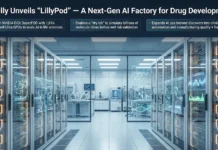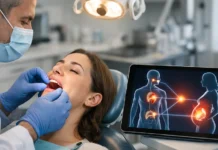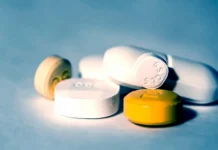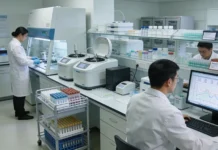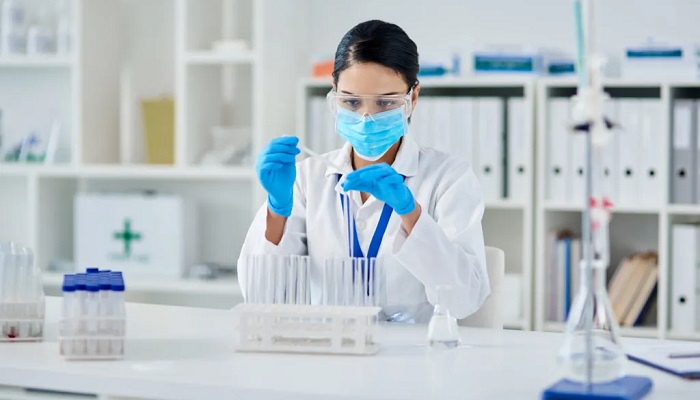It is worth noting that the new Australian Institute for Infectious Diseases- AIID has been established so as to bring together some of the country’s greatest scientific as well as medical research minds in order to offer a quick and coordinated response to both, present and future pandemics. In order to support AIID, a new medical research establishment is going to be put in place in Melbourne so as to provide state-of-the-art platforms along with tech that will help with the responses to the public health crisis, which indeed happens to be a requirement in a post-COVID scenario.
The three foundation partners, which are the University of Melbourne, Doherty Institute, and Burnet Institute, are all going to be coordinating to elevate the capabilities of Australia when it comes to infectious disease research, protecting Australian, education as well as public health, as well as regional and global communities.
The foundation partners happen to have expertise in terms of infectious disease and also public health, and they are going to be responsible when it comes to initiating the Victorian Infectious Disease Alliance along with delivering the AIID facility.
It is worth noting that the foundation partners will be co-locating within the facility and thereby participating as a part of the alliance.
It is well to be noted that the Victorian Government is going to be acting as the major supporting partner and, as a matter of fact, has already pledged $400 million to create a cutting edge as well as high-tech headquarters in the Melbourne Biomedical Precinct. Moreover, the foundation partners shall be contributing another $150 million for the facility, with the University of Melbourne offering the land for development, which is, as per estimates, valued at $100 million.
The co-chair of the AIID Project Steering Committee as well as Assistant Vice Chancellor, James McCluskey remarked that AIID happens to be representing a once-in-a generation choice to go ahead and integrate critical mass expertise within Melbourne around the new shared facilities, and that too is at the forefront when it comes to pandemic preparedness, response, as well as prevention.
Professor McCluskey adds that there was so much learned from the COVID-19 pandemic, and the three aid partners are right at the forefront when it comes to cutting edge science, government advisory, as well as leadership through those challenging times. The fact is that the AIID looks forward to building on those lessons and, at the same time, safeguarding Australia as well as the region from the next pandemic, which is, by the way, inevitable.
What are the focus areas as well as the impacts
The AIID is going to have the following major areas of focus when it comes to infectious diseases:
Therapeutics – Helping with a fast design as well as testing and delivering therapeutics when it comes to new pathogens in order to safeguard lives at scale within months. Notably, it will be the Cumming Global Center for Pandemic Therapeutics that is going to lead the work.
Diagnostics – Speeding-up of test development as well as commercially viable diagnostics
Genomics – Helping the regional capacity by way of robust systems in order to have fast prevention, detection as well as response when it comes to infectious diseases.
Vaccine Research – Driving the development when it comes to next-gen vaccines such as mRNA.
Clinical Trials – Offering a safe environment in terms of rapid assessment when it comes to new drugs as well as vaccines.
Data for public health decision-making – This will be done so as to translate research into health solutions that are sustainable for locations and also communities that are diverse.
The AIID is going to have quite a meaningful effect when it comes to the response to infectious diseases as well as pandemics such as –
Equity – the AIID is going to be an asset for Australians, the region, and, of course, the world. Its programs are going to feature as well as support varied, marginalized, as well as at-risk communities so as to make sure that there is no one left behind in terms of fighting against infectious diseases.
Speed – The ability of Australia to respond fast to emerging diseases is going to limit its effect on lives and livelihoods.
Innovations that are ground-breaking – Equipping the brightest of the minds with the most ideal tech as well as resources that are available so as to offer fertile grounds for discoveries as well as advancements that are breakthrough in nature.
Sovereign Capability – The AIID sovereign research as well as development capacity would protect Australia as well as the region from the effects when it comes to the global pandemic.
The AIID is going to make Australia more robust, so much so that the country responds to incidents as well as communities. It is well to be noted that the medical, scientific, and research community from Victoria went on to play a phenomenal role during the pandemic in terms of vaccine development, scientific discovery, therapeutics, diagnostics, and modeling, which had a worldwide impact.
AIID, as a matter of fact, is going to further establish Victoria in particular as a global leader when it comes to infectious diseases and public health and is also going to support the translation in terms of ground-breaking research in life-saving possibilities.
The building is going to be a center of excellence that is going to house almost 1000 researchers as well as staff from the foundational partners, biotech industry, commercial partners, and of course, Victorian Infectious Disease Alliance partners.
There is no shred of doubt that the co-location is going to strengthen the collaboration along with the engagement with the peers, both nationally as well as internationally, and at the same time come up with a platform in terms of new partnerships with the private sector as well as the industry stakeholders.
The facility is going to be featuring-
One of the largest high containment facilities that will be seen in the southern hemisphere, thereby helping to enable identification, isolation, will also characterize new viruses as well as other infectious diseases.
There will be a human infection challenge unit specifically designed to speed-up the development of new medicines as well as vaccines for major partners and industry clients through high-quality clinical research that’s ethical.


